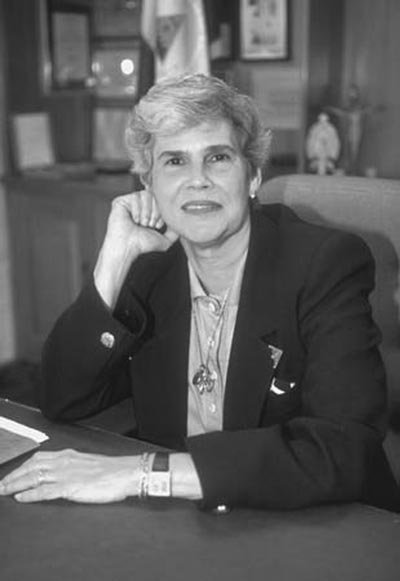Born: October 18, 1929, Rivas, Nicaragua

Violeta Barrios de Chamorro was the president of Nicaragua (1990-1997) and newspaper publisher. Born in Rivas, Nicaragua, and educated in the United States, she married Pedro Joaquin Chamorro Cardenal in 1950. Two years later he took over his family-owned newspaper La Prensa and turned it into a leading opposition voice to the dictatorial and repressive Somoza regime that ruled Nicaragua. Pedro Chamorro was repeatedly jailed; in 1957 he was sent into exile, joined by Violeta. Returning after amnesty in 1960, he suffered further harassment, and in 1978 he was assassinated. Violeta Chamorro then took over the management of La Prensa, continuing its anti-Somoza policy. The paper was influential in overthrowing the Somoza dictatorship and in establishing the Sandinista government in 1979. Chamorro joined the five-member executive council within the Government of National Reconstruction but resigned less than a year later, disillusioned with the leftist policies of the ruling party. Her newspaper became the leader in attacking the government, which in 1986 closed it down. The paper was allowed to resume uncensored publication in 1987.
Through the 1980s Nicaragua was caught up in a civil war against the government by rebels known as contras, who were supported by the United States. As part of a regional peace plan, the Sandinista government agreed to hold free elections in 1990. Chamorro was chosen as the presidential candidate of the National Opposition Union (known by its Spanish acronym, UNO), a coalition of 14 parties that opposed the Sandinistas. The Sandinista party nominated the incumbent president, Daniel Ortega Saavedra. Chamorro campaigned on a pledge to end the military draft and seek national reconciliation. Although Ortega led in pre-election polls, Chamorro won resoundingly in the February 1990 elections, receiving 55 per cent of the vote. She was inaugurated in April 1990, becoming the first woman president of a Central American nation.
As president she worked to reform the military and to improve Nicaragua’s devastated economy. However, her ability to govern was limited by the continuing political strength of the Sandinistas, who retained control of the military and a legislative majority, and by internal divisions that led to the collapse of the UNO coalition. By law, Chamorro could not run for re-election, and in 1996 she was succeeded by Arnoldo Alemán.

